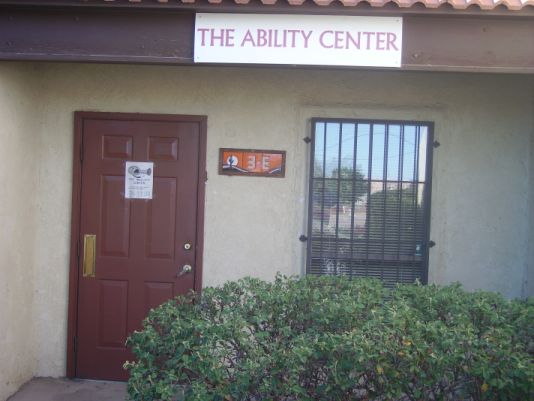|
GREETINGS EVERYONE!!!
We hope that
everyone has had a great start to their 2010 year. It
seems time is flying by. We’re excited about this
approaching month of March as due to unforeseen planning
obstacles, we had to delay some of our project
implementation plans. However, we’re happy to report all
these obstacles were addressed and we’re ready to
proceed. This month’s newsletter will address the
following:
·
Recap of
TACIL’s activities
·
Tips for
healthy eating
·
Recipe of
the Month
·
Scam Alert
Tips
·
Thank-you to
our collaborators

10
HEALTHY EATING TIPS

1.
Eat a
variety of nutrient-rich foods. You need
more than 40 different nutrients for good health, and no
single food supplies them all. Your daily food selection
should include bread and other whole-grain products;
fruits; vegetables; dairy products; and meat, poultry,
fish and other protein foods. How much you should eat
depends on your calorie needs. Use the Food Guide
Pyramid and the Nutrition Facts panel on food labels as
handy references.
2.
Enjoy plenty
of whole grains, fruits and vegetables. Surveys
show most Americans don't eat enough of these foods. Do
you eat 6-11 servings from the bread, rice, cereal and
pasta group, 3 of which should be whole grains? Do you
eat 2-4 servings of fruit and 3-5 servings of
vegetables? If you don't enjoy some of these at first,
give them another chance. Look through cookbooks for
tasty ways to prepare unfamiliar
foods.
3.
Maintain a
healthy weight. The weight
that's right for you depends on many factors including
your sex, height, age and heredity. Excess body fat
increases your chances for high blood pressure, heart
disease, stroke, diabetes, some types of cancer and
other illnesses. But being too thin can increase your
risk for osteoporosis, menstrual irregularities and
other health problems. If you're constantly losing and
regaining weight, a registered dietitian can help you
develop sensible eating habits for successful weight
management. Regular exercise is also important to
maintaining a healthy weight.
4.
Eat moderate
portions. If you keep
portion sizes reasonable, it's easier to eat the foods
you want and stay healthy. Did you know the recommended
serving of cooked meat is 3 ounces, similar in size to a
deck of playing cards? A medium piece of fruit is 1
serving and a cup of pasta equals 2 servings. A pint of
ice cream contains 4 servings. Refer to the Food Guide
Pyramid for information on recommended serving
sizes.
5.
Eat regular
meals. Skipping
meals can lead to out-of-control hunger, often resulting
in overeating. When you're very hungry, it's also
tempting to forget about good nutrition. Snacking
between meals can help curb hunger, but don't eat so
much that your snack becomes an entire
meal.
6.
Reduce,
don't eliminate certain foods. Most people
eat for pleasure as well as nutrition. If your favorite
foods are high in fat, salt or sugar, the key is
moderating how much of these foods you eat and how often
you eat them.
Identify major sources of these
ingredients in your diet and make changes, if necessary.
Adults who eat high-fat meats or whole-milk dairy
products at every meal are probably eating too much fat.
Use the Nutrition Facts panel on the food label to help
balance your choices.
Choosing skim or low-fat dairy
products and lean cuts of meat such as flank steak and
beef round can reduce fat intake significantly.
If
you love fried chicken, however, you don't have to give
it up. Just eat it less often. When dining out, share it
with a friend, ask for a take-home bag or a smaller
portion.
7.
Balance your
food choices over time. Not every
food has to be "perfect." When eating a food high in
fat, salt or sugar, select other foods that are low in
these ingredients. If you miss out on any food group one
day, make up for it the next. Your food choices over
several days should fit together into a healthy
pattern.
8.
Know your
diet pitfalls. To improve
your eating habits, you first have to know what's wrong
with them. Write down everything you eat for three days.
Then check your list according to the rest of these
tips. Do you add a lot of butter, creamy sauces or salad
dressings? Rather than eliminating these foods, just cut
back your portions. Are you getting enough fruits and
vegetables? If not, you may be missing out on vital
nutrients.
9.
Make changes
gradually. Just as
there are no "superfoods" or easy answers to a healthy
diet, don't expect to totally revamp your eating habits
overnight. Changing too much, too fast can get in the
way of success. Begin to remedy excesses or deficiencies
with modest changes that can add up to positive,
lifelong eating habits. For instance, if you don't like
the taste of skim milk, try low-fat. Eventually you may
find you like skim, too.
10.
Remember,
foods are not good or bad. Select
foods based on your total eating patterns, not whether
any individual food is "good" or "bad." Don't feel
guilty if you love foods such as apple pie, potato
chips, candy bars or ice cream. Eat them in moderation,
and choose other foods to provide the balance and
variety that are vital to good health.
THANK YOU TO
ALL OUR COLLABORATORS

TheAbility Center wants to
take the time to thank the following individuals and
(or) organizations for the great contributions they have
made to the Center helping to fulfill our
mission:
·
Aging and
Long Term Services: Traumatic Brain Injury
Program
·
Blas
Rel
·
Brain Injury
Association of New
Mexico
·
Carl C.
Anderson Sr. & Marie Jo Anderson
Foundation
·
Casa De
Oro Care Center
·
Chris Van
Horn
·
Christina
Little of the United Way of Southwestern
New Mexico
·
Deming
Luna
County Commission
on Aging
·
Disability
Rights New
Mexico
·
Hidalgo
County
Senior
Center
·
Independent
Living
Resource
Center of
Albuquerque
·
Munson
Center
·
Our
Dedicated Board of Directors
·
Our
Dedicated Staff
·
Rehabilitation
Services Administration
·
San
Juan
Center for
Independence
·
Sandra
Williams
·
Social
Security Administration
·
The
Catron County Health
Council
·
The McCune
Charitable Foundation
·
The
New
Mexico Division of Vocational
Rehabilitation Area 3 Office
·
The New
Mexico Governor’s Commission on
Disability
Most
importantly, our Consumers for having faith in us and
coming back to us for assistance to live a high quality
of life in their communities free of exploitation and
institutionalization.
UNTIL NEXT MONTH
EVERYONE!!!

|